-
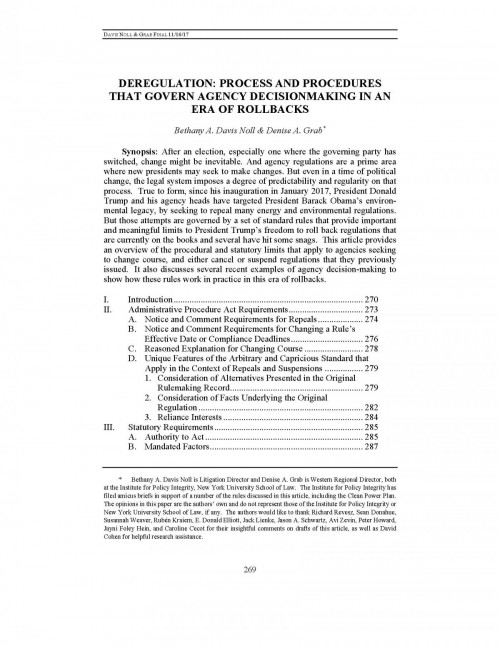
Deregulation: Process and Procedures That Govern Agency Decisionmaking in an Era of Rollbacks
Though change might be inevitable when a new governing party comes to power, the United States’ legal system imposes a degree of predictability and regularity on that change. Since his inauguration in January 2017, President Donald Trump and his agency heads have been working to repeal many energy and environmental regulations issued under prior administrations. But these attempts are governed by a set of standard rules that limit President Trump’s freedom to roll back regulations. This article, published in the Energy Law Journal, provides an overview of the procedural and statutory limits that apply to agencies seeking to change course and cancel or suspend regulations that they previously issued. It also discusses recent examples of agency decision-making to show how these limits work in practice.
-
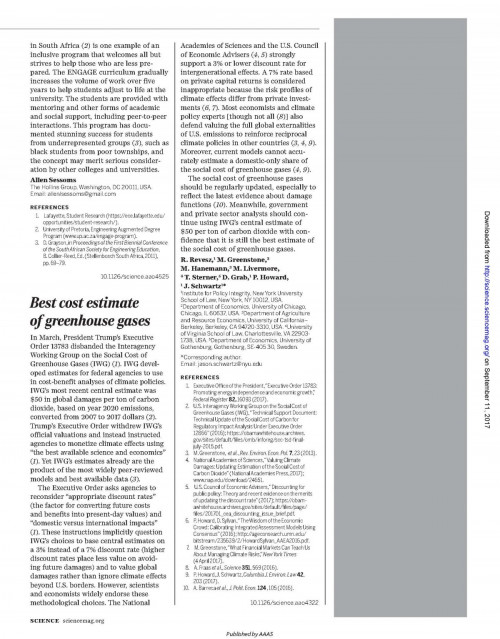
Best Cost Estimate of Greenhouse Gases
Despite the Trump administration’s decision to withdraw the official estimate of the Social Cost of Carbon and disband the interagency working group that developed it, a group of prominent economists and lawyers, including several Policy Integrity staff members, have highlighted the metric’s continued validity for policymaking in recent letter published in the journal Science.
-
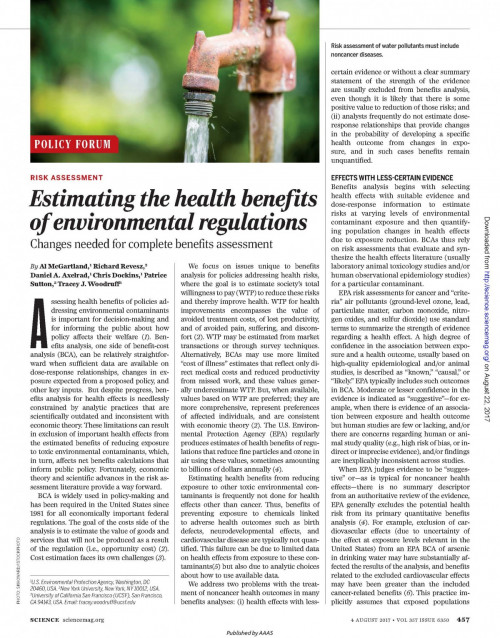
Estimating the Health Benefits of Environmental Regulations
Regulating toxic pollutants benefits society by limiting public exposure to harmful pollution. By accurately quantifying these benefits, policymakers can improve the design of regulations that protect public health and better communicate the magnitude of these protections to the public. A new article in the journal Science examines how this process can be improved.
-
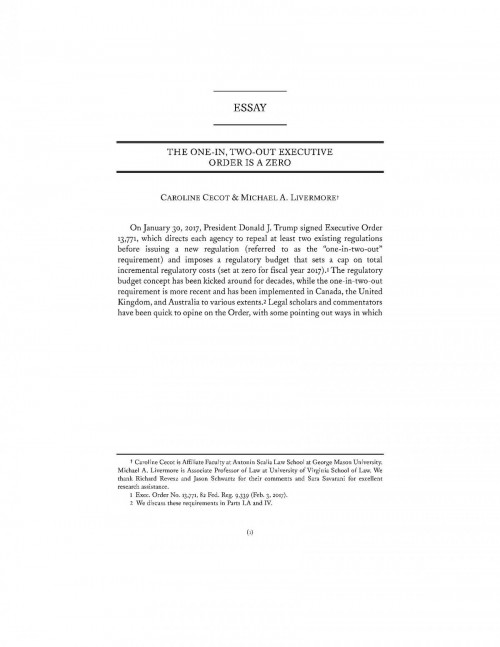
The One‐In, Two‐Out Executive Order Is a Zero
President Trump’s Executive Order 13,771 directs each agency to repeal at least two existing regulations before issuing a new one and imposes a regulatory budget that sets a cap on total incremental regulatory costs. In this essay, Caroline Cecot and Michael Livermore evaluate the Order against three priorities that have been adopted by prior administrations or promoted by scholars, commentators, or interest groups: (1) increasing net benefits of regulation, (2) decreasing regulatory burdens, and (3) increasing presidential control over agencies. They also compare the Order against the regulatory reform efforts in other countries.
The authors conclude that the Order is unlikely to achieve any of these goals without significant changes. They urge President Trump to scrap the Order and instead ensure that agencies engage in reasonable retrospective review of existing regulations and that the Office of Information and Regulatory Affairs has sufficient staff to oversee agency decisionmaking, among other sensible reforms.
-
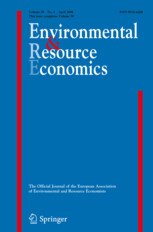
Few and Not So Far Between
A Meta-analysis of Climate Damage Estimates
Given the vast uncertainty surrounding climate impacts, meta-analyses of global climate damage estimates are a key tool for determining the relationship between temperature and climate damages. Due to limited data availability, previous meta-analyses of global climate damages potentially suffered from multiple sources of coefficient and standard error bias. To address and test for these biases, we expand on previous datasets to obtain sufficient degrees of freedom to make the necessary model adjustments, including dropping duplicate estimates and including methodological variables. Estimating the relationship between temperature and climate damages using weighted least squares with cluster-robust standard errors, we find strong evidence that duplicate and omitted variable biases flatten the relationship. However, the magnitude of the bias greatly depends on the treatment of speculative high-temperature (>4 ◦C) damage estimates. Replacing the DICE-2013R damage function with our preferred estimate of the temperature–damage relationship, we find a three- to four-fold increase in the 2015 SCC relative to DICE, depending on the treatment of productivity. When catastrophic impacts are also factored in, the SCC increases by four- to five-fold.
Viewing all publications in Academic Articles/Working Papers
